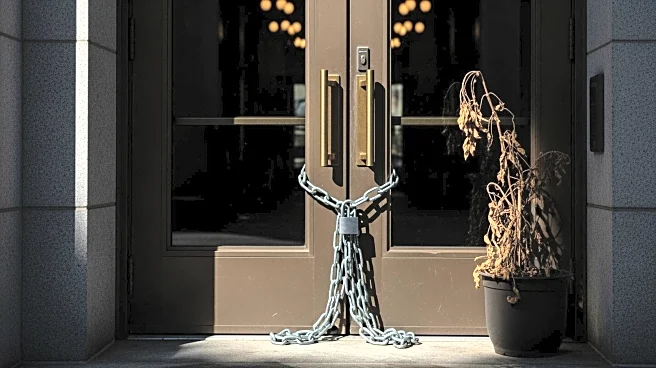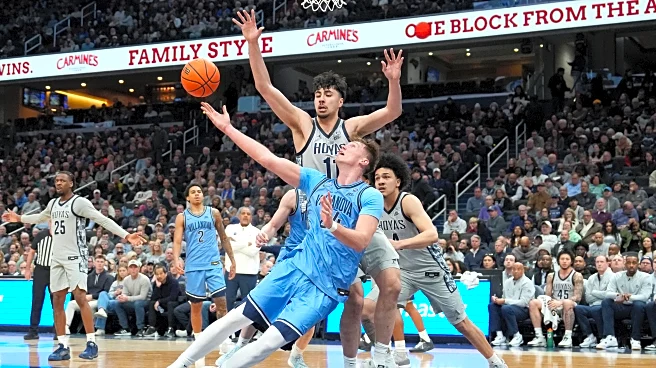What's Happening?
On the twenty-first day of the government shutdown, President Trump hosted Republican senators at the 'Rose Garden Club,' excluding Senator Rand Paul due to his stance on national debt. The shutdown is affecting public programs, including the Supplemental
Nutrition Assistance Program (SNAP), which serves 42 million Americans. States like Texas, Pennsylvania, Minnesota, and New York warn they cannot fund SNAP if the shutdown continues. House Speaker Mike Johnson is keeping the House out of session, preventing the swearing-in of representative-elect Adelita Grijalva, leading to a lawsuit from Arizona.
Why It's Important?
The government shutdown has significant implications for public welfare programs and political operations. SNAP benefits are crucial for millions of Americans, and the inability to fund them could lead to increased food insecurity. The political maneuvering by House Speaker Johnson highlights the divisions within the Republican party and the impact on legislative processes. The lawsuit regarding Grijalva's swearing-in underscores the legal and constitutional challenges arising from the shutdown.
What's Next?
If the shutdown continues, states may face increased pressure to find alternative funding for SNAP, potentially leading to budget reallocations or emergency measures. The lawsuit against the House could result in legal precedents regarding congressional operations during a shutdown. Political leaders may engage in negotiations to resolve the impasse, with potential compromises or shifts in party strategies.
Beyond the Headlines
The ethical considerations of using a government shutdown as a political tool are significant, affecting public trust in governance. The long-term impact on public programs and infrastructure projects could alter societal dynamics and economic stability. The shutdown may influence future political campaigns and voter perceptions of party priorities.


















